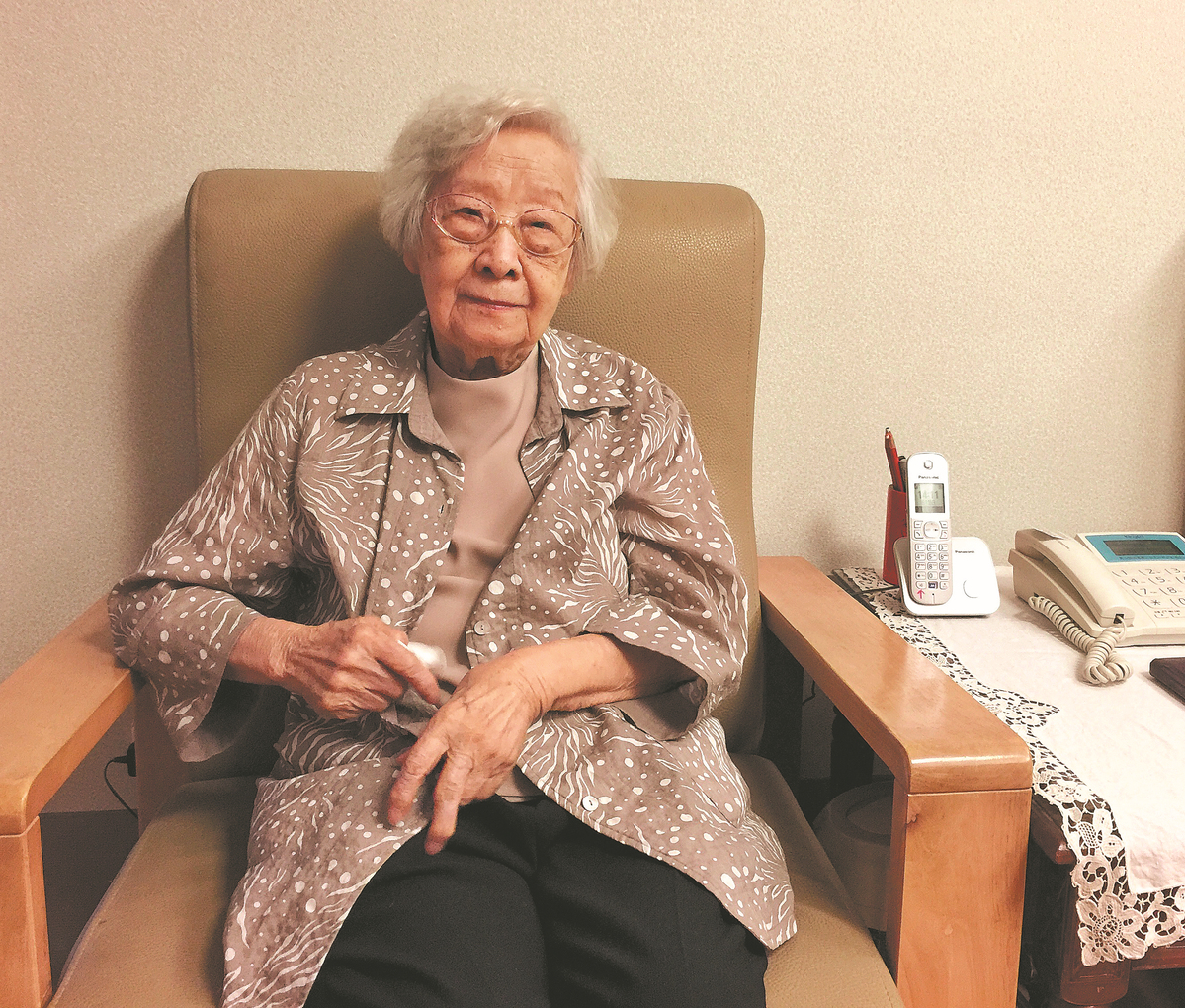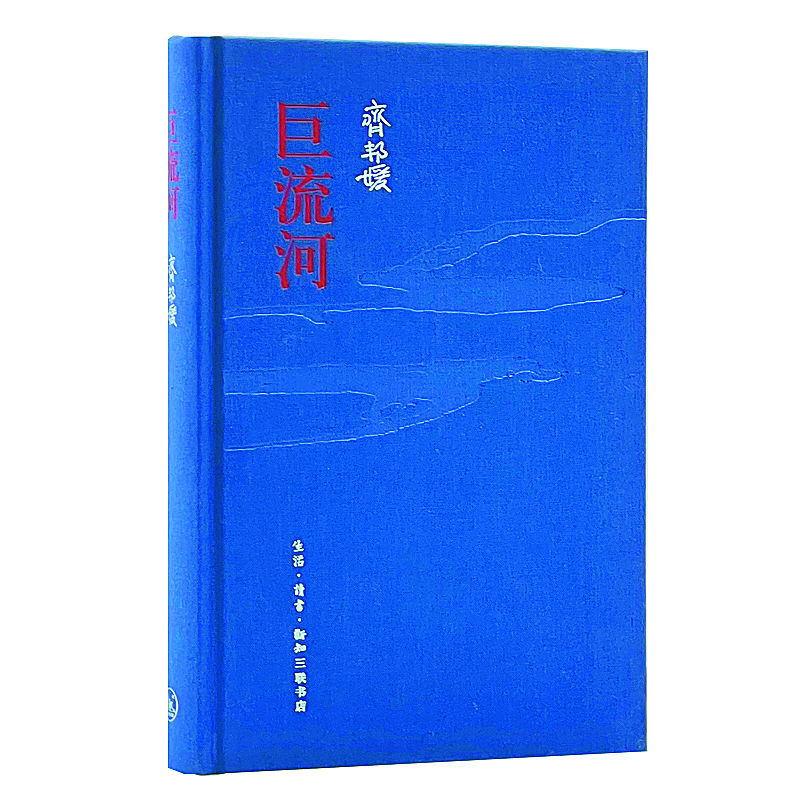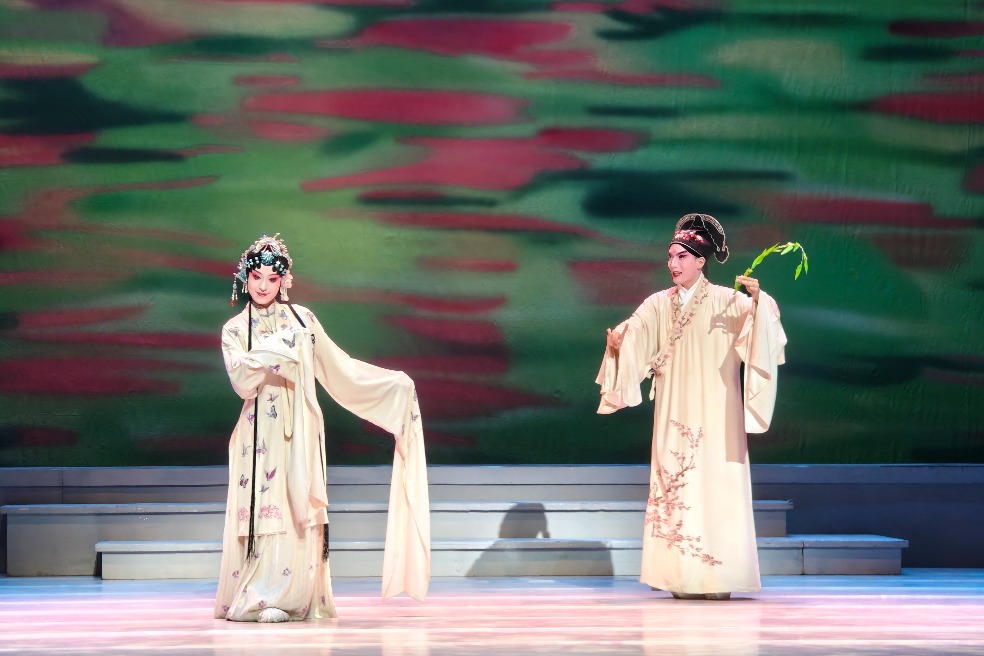Famed Taiwan author, 100, dies
Chi Pang-yuan's The Great Flowing River a memoir of love, war during era of turmoil in China


Chi Pang-yuan, a renowned scholar and author of The Great Flowing River: A Memoir of China, from Manchuria to Taiwan, died on March 28. She was 100.
"She had a righteous spirit. She is a song of righteousness," Taiwan writer and literary critic Kenneth Pai said while discussing Chi's life.
Born on Feb 19, 1924, in what is now Tieling, of Liaoning province, Chi spent her early years in turmoil as war swept across China, enduring bombings that occurred during the War of Resistance Against Japanese Aggression (1931-45).
After graduating from Wuhan University in Hubei province in 1947, she went to Taiwan to take a teaching job. Though she had a return ticket to the mainland, she ended up spending the rest of her life on the island.
In 1968, Chi went to study at Indiana University in the United States.
The following year, she became the head of the department of foreign languages and literature at a university in Taichung, Taiwan.
She went on to work as a professor in a similar department at a university in Taipei and ultimately retired in 1988.
A promoter of literature, she edited, translated and published a variety of literary critiques, introducing a vast array of Western literature to Taiwan, and translating representative literary works from Taiwan into English. She also contributed significantly to cultural exchanges across the Taiwan Strait.
For readers across the Strait, Chi was most famous for her memoir, which she started writing when she turned 80 and spent four years completing.
The book — called Juliu He in Chinese, meaning Juliu River — was published in Taiwan in 2009 and on the Chinese mainland in 2010. It has been translated into English and Japanese.
Named after Liaoning's Liaohe River, which was called the Juliu River during the Qing Dynasty (1644-1911), the epic narrative spans a century, chronicling the tumultuous times from the Juliu River on the Chinese mainland to Yakou mountain pass in Taiwan.
This book follows two main plotlines. One traces the experiences of her father, Qi Shiying, who shows the resilience and dignity of a generation of Chinese people facing the Japanese invasion.
The other follows Chi's life, depicting the author's birth and childhood, her wartime evacuation to Chongqing, her education at Nankai Middle School and Wuhan University, and later her pursuit of an academic career in Taiwan.
Written in a gentle and restrained style, the book is not just a personal memory, but a historical testimony of 20th-century China, a memoir written to "commemorate a nation with a backbone", as she said at a book launch ceremony in 2010.

The book begins with Chi's birth as a sick baby girl who narrowly escapes death. The doctor who saves her life gives her the name Bangyuan, which means "a woman with beauty, grace and dignity embodying the elegance of a nation".
During the first six years of her life, Chi lived in the countryside of Tieling with her mother. Her father, a young man who studied in Japan and Germany, had returned to China looking to help quash skirmishes between warlords and defend the country from military threats made by Japan and Russia.
He followed Guo Songling, a subordinate of Zhang Zuolin, a major warlord dominating northeastern China.
At the end of 1925, Guo turned against Zhang, but he failed and was killed. Subsequently, Qi became one of the individuals Zhang sought to capture. This led Qi to flee to Nanjing.
When Chi was 6 years old, she and her mother left Tieling to join Qi. This was the beginning of 17 years of a displaced life.
"Since the 20th century, the Chinese people have been entangled in suffering … The living do not speak, the dead remain silent," Chi wrote in the book. Such history needs to be recorded because, as she said, "The best way to respond to the ruthlessness of the times and the vicissitudes of history is to write about people and events that transcend political success or failure."
For many people, the sad love story depicted in the book between Chi and a young man Zhang Dafei fully encapsulates this idea.
After the Sept 18 Incident in 1931, which marked the start of Japan's invasion of China, Qi secretly returned to the Northeast to engage in anti-Japanese activities, and the family moved to various places, including Beijing and Tianjin.
Qi eventually returned to Nanjing, where he set up a school for homeless students. One of them was 18-year-old Zhang Dafei.
Zhang Dafei spent a lot of time with the family, often dining with them, and over time he became like an older brother to Chi, bringing her a sense of comfort during a time when she felt panic, despair and loneliness amid the chaos of war.
Zhang Dafei's father, a government official in Northeast China, was burned alive by Japanese troops as a punishment for his role in assisting the resistance against the invaders, and the young man lost contact with his family after they fled.
After full-scale war broke out in July 1937, he applied to a military school to better serve the country and avenge his father's death.
Before he departed for the school, he left Chi a small package, in which she found a new copy of the Bible. On the title page, Zhang wrote: "Wishing you a bright, lovely future, so that you will live in happiness forever."
She kept that book her entire life.
Zhang Dafei became a pilot and a member of the famed Flying Tigers, fighting the Japanese invaders in the skies. Although they were seldom able to meet, the two kept writing to each other over the next six years.
From 1937 to 1945, Chi read a large number of literary works from home and abroad under the protection and guidance of many reputed scholars and teachers, including Zhang Boling and Zhu Guangqian.
In April 1943, Zhang Dafei went to visit Chi. Upon seeing her, he uttered a sentence that Chi said she never forgot: "You have grown up and become so beautiful." In heavy rain, they found shelter under eaves, where he held her against his chest for a moment and she could hear his heart pounding like a drum.
Chi wrote that she never saw him again after that.
On May 18, 1945, three months before Japan surrendered, Zhang Dafei was killed in aerial combat. Chi received a package from her older brother containing some of the young soldier's personal effects. She was so heartbroken that she didn't open the package for two years.
When she eventually did, she found more than 100 letters she had written to Zhang Dafei and learned that he had died with one of them in his pocket. There was also a letter he had written to her brother, in which he confessed a love for her that he had never revealed and expressed sorrow that they could not be together.
In 1995, Chi found Zhang Dafei's gravestone in Nanjing. Then 75 years old, she saw the gravestone and cried, as the memorials to the other more than 3,000 heroes on the mountain bore silent witness.
This timeless love story, pure and pristine, is the most touching chapter in the book and also serves as a testament to the blood and tears shed during of an era of conflict.
David Der-wei Wang, literary historian and Chinese literature professor at Harvard University, commented in a critique of the book that it is "so sorrowful, so joyful, so unique", emitting a "pure" sound, "a clear and emotional voice forged from a thousand years of tears, transcending history".
By March 2016, The Great Flowing River had sold 260,000 copies. In the days following Chi's passing, it has become a bestseller once again, ranking among the most searched titles on online shopping platforms such as JD and Dangdang.
- China carries out key test on a new type of reusable carrier rocket
- PLA unit conducts nighttime drill simulating terrorist elimination
- China's light sports aircraft gains core independence with homegrown engine and avionics
- Record number of black-necked cranes arrive at Guizhou's nature reserve
- New morning and evening peak-hour trains to run between Beijing and Xiong'an
- College student rediscovers figure skating passion



































